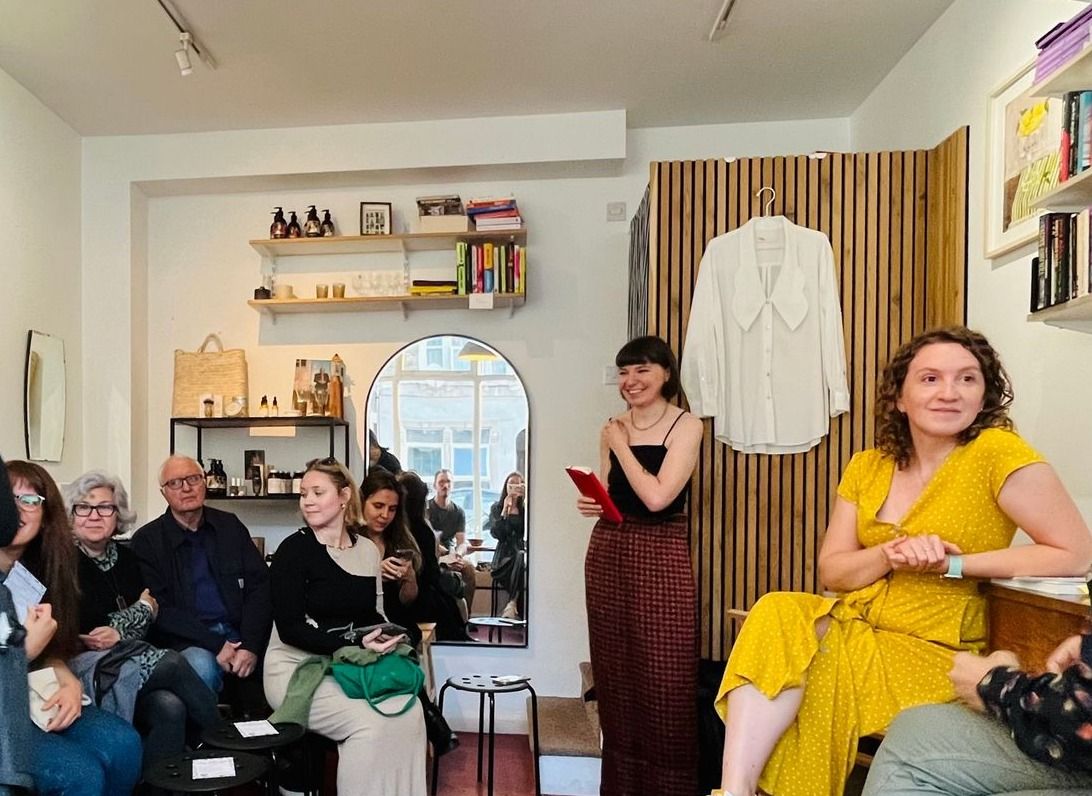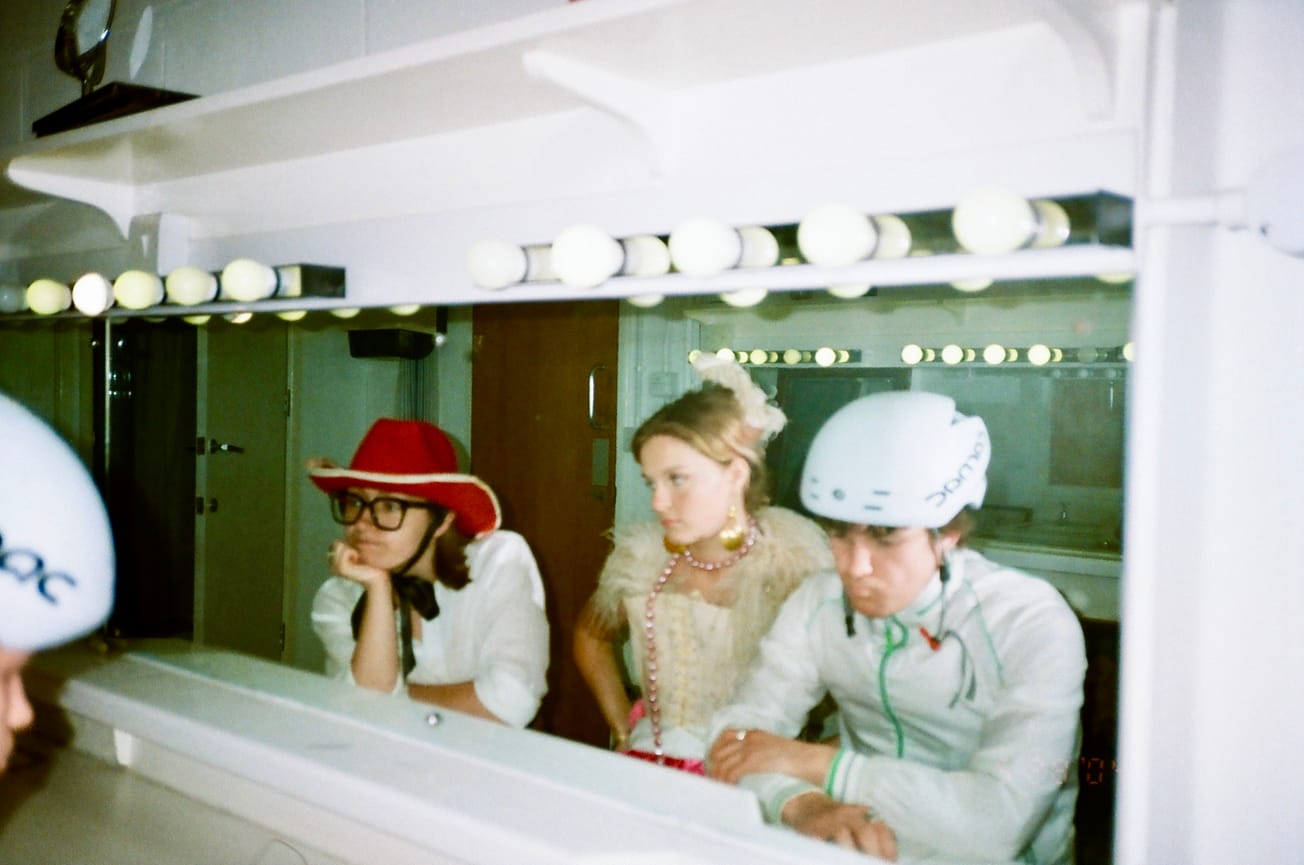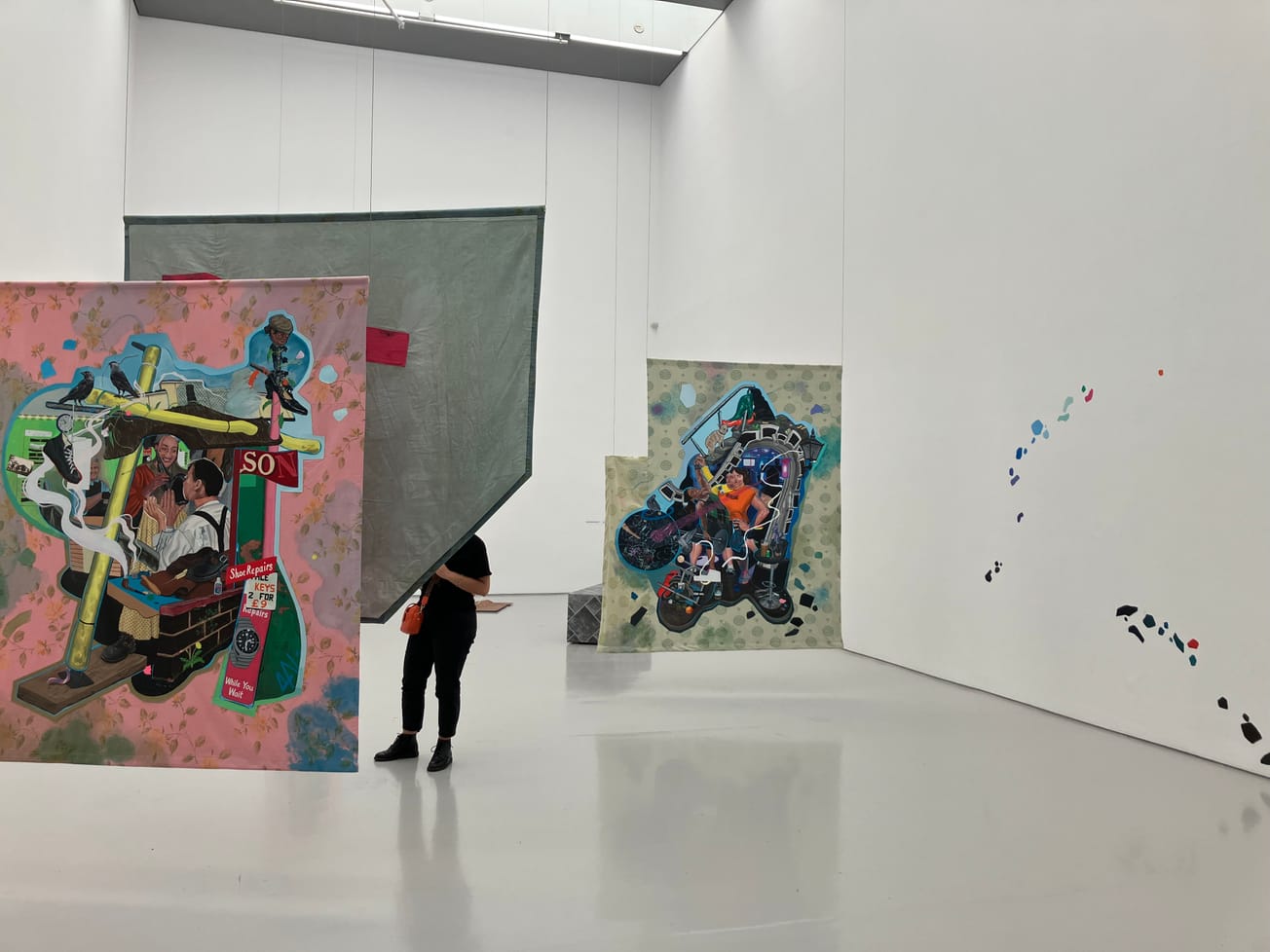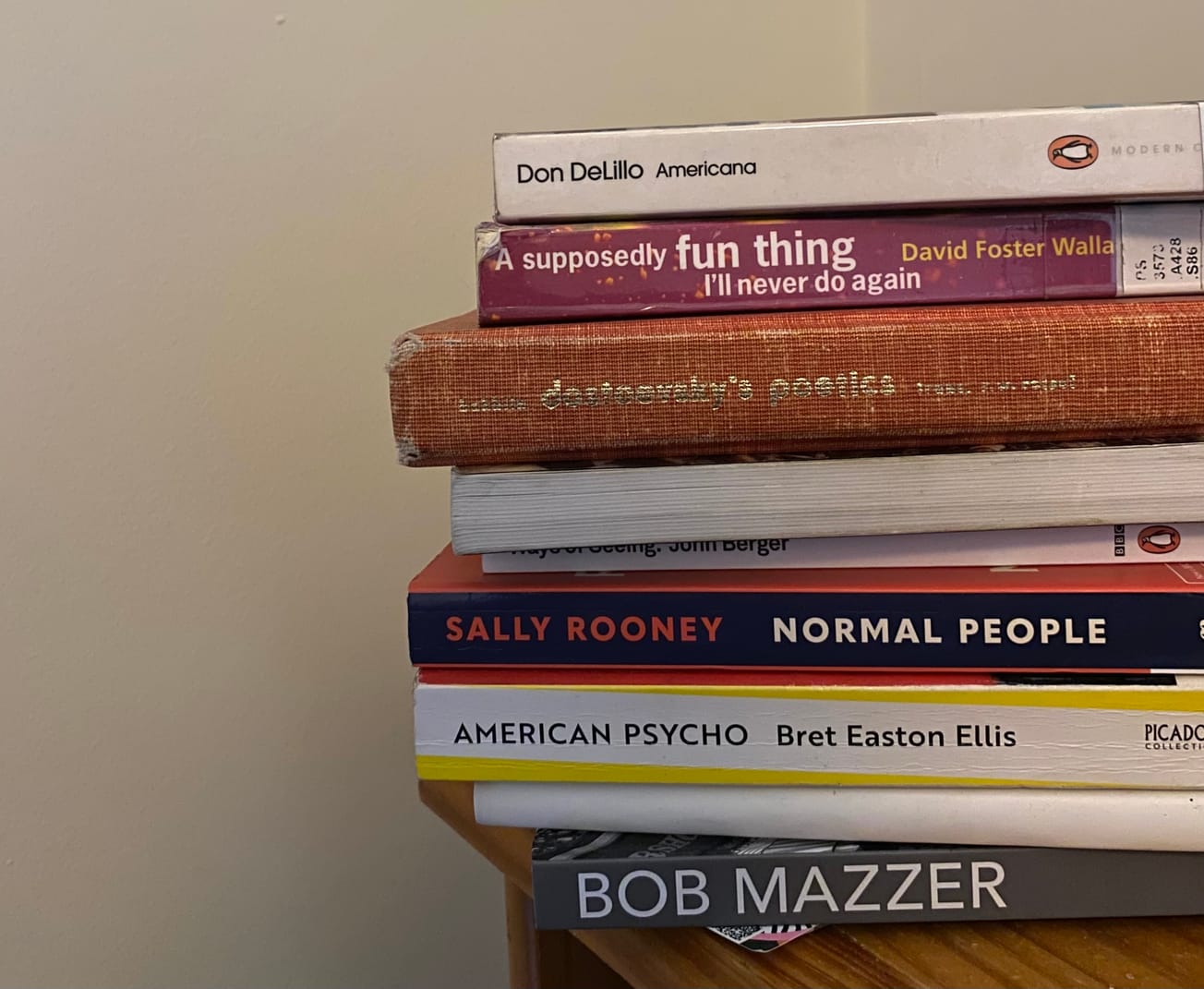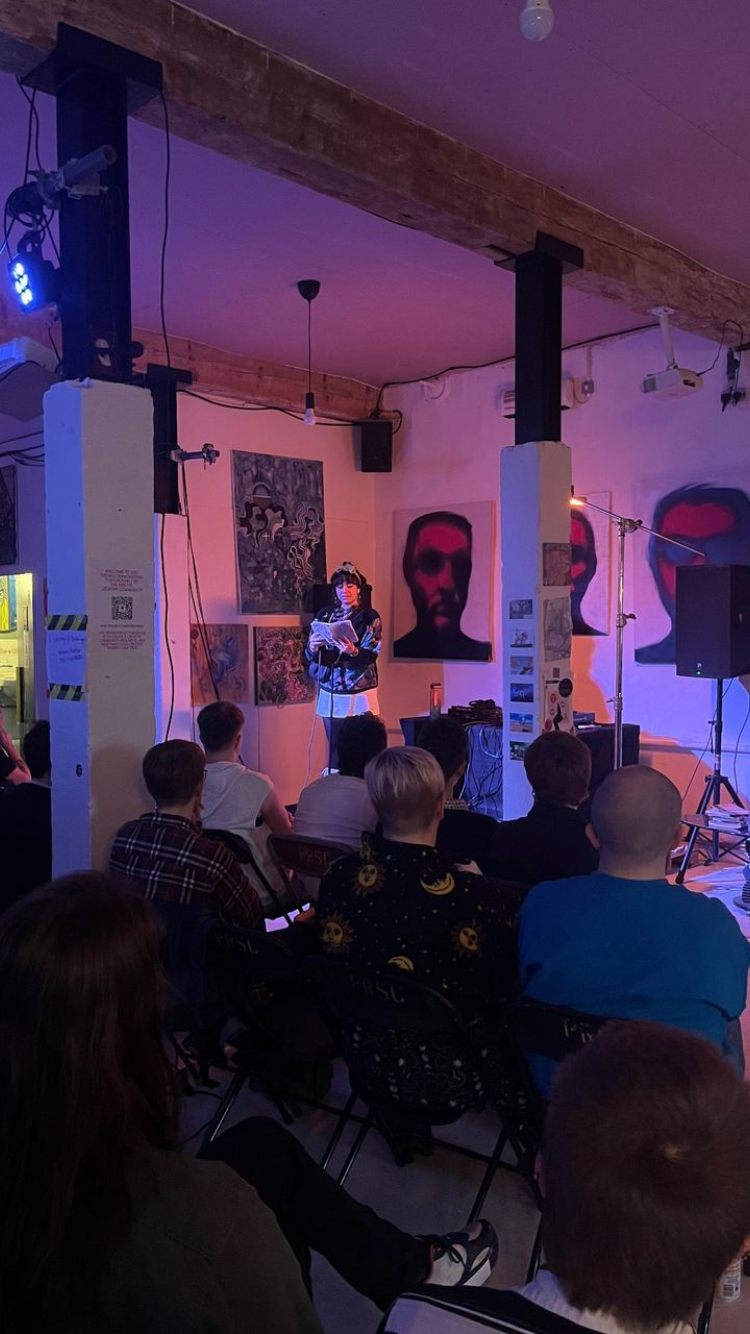By Izzy Fraser, Second Year, English
The Good Book Club is an intersectional feminist club designed by Cat of The Good Book Shop which 'amplifies under-represented voices in publishing'. As an online service, one can join to receive newsletters and a monthly intersectional read. As a Bristol based presence, it hosts a number of events such as the talk this article concerns.
Having read and greatly enjoyed the author's second novel, I spent an evening sitting in on ‘A Conversation with Katixa Agirre and Emily Koch on Mothers Don’t'. Mothers Don’t is a complex, shocking novel that has been described as ‘halfway between a thriller and a journalistic chronicle’. The book is centred around a mother who kills her two infant children, and how this case becomes the obsession of the narrator, a new-to-motherhood author. The Spanish writer of Basque origin spoke on all things feminism, translation and her own personal experience of motherhood, explaining her motivation behind writing this book that focuses on one of the most taboo topics in literature (and life): infanticide. The discussion left me with as many questions as had been answered (in the best way possible), which reflects the thought-provoking, open-endedness of the novel.
The event was hosted at The Good Book Shop, a venue that is best described as a hidden gem. This intimate setting only allowed for a very small audience which made the experience feel much more personal, as if the author was talking to us, not just the interviewer (who is also a well-established author) Emily Koch. Since achieving the Premio 111 Akademia award for her debut novel Ateru arte Itxaron?, Agirre’s three novels have been translated into a breadth of languages, reflective of the overwhelmingly positive reception of (and increasing demand for) her work.
Much of Agirre and Koch’s discussion centred how characteristically taboo the novel is, and when asked what her main intention was, the author responded, ‘I think I wanted to shock’. She explained that her novel acts in response to how throughout literature it is ‘men who kill’, but never women (or mothers). She ‘started doing research and discovered it was very common throughout history… motherhood and infanticide are so close to each other; it’s always been there’. Agirre’s intention to shock the reader was certainly achieved through my personal reading experience even prior to opening the book; the blurb reads ‘Have you ever felt so desperate that you thought about killing your children?’. The novel is from the nameless author’s perspective and when Agirre was asked about her decision of narrative voice she stated, ‘We do not get to know the killer well… she never gets a chance to talk’. The killer’s voicelessness is essential in the mystery that surrounds the crime and keeps the reading experience highly engaging throughout.
The author writes in her endnote to the novel: ‘For their help, I would like to thank…all those who took care of my children while I was writing’. In this, Agirre expresses how her own experience of motherhood was integral to her writing of the novel. She discussed the guilt versus lack-of-guilt predicament that is an inevitable consequence of balancing motherhood and ‘writerhood’ and the ‘ego you have to give yourself to write’, a struggle that the narrator experiences throughout. In lieu of this, Koch questioned Agirre on how closely the narrator was inspired, or if she was inspired at all, by herself. In response, the author described the narrator as ‘a little bit of me’ and revealed that she gave the narrator the same birthday as her.
Feminism is integral to the book, and questions are raised, particularly at the climax of the novel, as to whether it is ‘giv[ing] into outdated views of motherhood and femininity’ to explain a mother’s cruelty by madness. Agirre held in the interview that the debate between madness and pure evil is key to the novel, and in my view the fact that these questions on feminism’s relationship with motherhood are raised by the book is one its most successful aspects. When asked if her writing is always of a feminist stance, Agirre claimed ‘that is the way I live my life’, however clarified that she would write something ‘un-feminist if it worked for the book… literature is the anti-dogmata’.
The feminist angle of the book is reflected by the chosen publisher "3TimesRebel" that only publishes women writers, minority languages and fiction in translation. The book was written originally in Agirre’s native language, Basque, while the version published by "3TimesRebel" is a direct translation by Kristin Addis from Basque to English. Agirre stated she hasn’t read it but is aware that the original US translation (translated from Basque to Spanish, Spanish to English) contains many cultural references that have been changed to fit the US audience, which is why the work of "3TimesRebel" is invaluable. Since its first publishing in Basque, Agirre stated the book has been translated into 8 or 9 different languages, and even that the books film rights have been bought, reflecting the sheer success of the book and its ability to transcend global borders.
Mothers Don’t is a fascinating, shocking, at times uncomfortable but equally witty read that provokes the reader to ask questions on the emotional consequences of childbirth, and if pure evil can exist within motherhood. It’s a must read.
Visit https://goodbookclub.co.uk/ if you're curious to know more about conversations like this.

